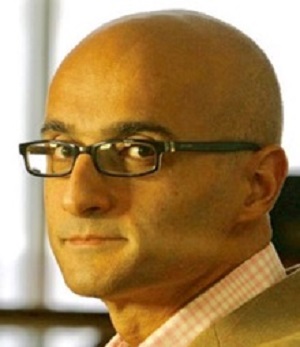 Robots will soon be able to diagnose patients “more accurately and faster” than almost any doctor, says the man behind a controversial NHS scheme which will see chatbots employed to assess 111 calls, reports The Telegraph.
Robots will soon be able to diagnose patients “more accurately and faster” than almost any doctor, says the man behind a controversial NHS scheme which will see chatbots employed to assess 111 calls, reports The Telegraph.
A private company with a string of health service contracts is to launch a national scheme which allows patients to receive a full diagnosis by smartphone – without ever having to see a GP.
Babylon Health has just begun a pilot scheme which means patients in five boroughs of London are encouraged to consult a chatbot instead of a human being, when they contact the 111 non-emergency line.
Under the system, patients key in their symptoms, with artificial intelligence used to assess the urgency of each case, and determine whether users should be told to go to A&E, a pharmacy or tuck up at home.
Now the company’s chief executive has revealed it is to launch a more sophisticated model which will allow any individual to receive a diagnosis by smartphone.
Dr Ali Parsa, the company’s founder said the system would allow doctors to work in tandem with artificial intelligence – so that medics could focus on treating rather than diagnosing diseases. The entrepreneur said: “There are 300 million pieces of knowledge that we have collected.
“No human brain can do that. This is the largest amount of primary care clinical semantic knowledge in the would that is held by any computer, as far as we know.”
The model remains in development, but tests so far have shown it is faster and more accurate than the doctors in risk assessing cases, Dr Parsa said.
In the coming months, research will test the thesis that it can also outperform medics in making a full diagnosis. So far, trials have found it can do so in all abdominal diseases, the company said.
“I think we will soon be able to diagnose more accurately and faster than a doctor in most cases. That leaves the doctor to focus on the management of the diseases,” Dr Parsa said.
However last week health watchdogs issued a public warning about the dangers of online prescribing.
The Care Quality Commission urged consumers to be wary of online services, after inspections of two web companies – Asset Chemist and Treated.com – which were found to be doling out drugs without checking patients identities or spotting high risks of side effects.
Babylon Health, which was founded in 2013, last month took on the contract to provide virtual responses to 111 cases in north London, covering the boroughs of Barnet, Camden, Enfield, Haringey and Islington.
And since 2015, it has been offering NHS patients in Essex consultations by webcam, with private doctors doing the work that would normally be done by GPs.
Its app, which triages cases – making a risk assessment of urgency – is already available free to consumers in any part of the country. Consumers can pay £25 if they need a webcam consultation with a private doctor, or subscribe to the service for £5 a month for unlimited access.
More than 190,000 consumers have signed up for the scheme, with 120 corporate clients – including the companies Boots, Bupa and Sky – providing free subscriptions to staff. Online doctors do not have access to the patient’s medical notes and could miss symptoms which might otherwise be detected, they said.
And concerns have been raised that such schemes pave the way for the “privatisation” of the NHS, at a time when it is under unprecedented strain.
However, Dr Parsa said tests comparing speed, accuracy and safety of the artificial intelligence system showed the computer consistently outperforming the human.
Tests comparing accuracy of triage forund that nurses results were accurate in 73.5 per cent of cases, while doctors achieved accuracy levels of 77.5 per cent, while the computer reached rates of 90.2 per cent.
The chatbot model achieved its results far more quickly, he said.
While doctors took an average of 3 min 12 seconds to make a diagnosis and a nurse took 2 minutes 27 seconds, the computer took 1 minute 7 seconds.
The findings came from a panel of senior doctors who judged the accuracy and speed of diagnosis after the event.
Dr Parsa said it was not a question of robots replacing medics – but of providing doctors with the best support.
“If you think of the game of chess – no person can beat the machine – but the best games come when chess players are assisted by machine,” he said.
“We would not accurately forecast the weather without a computer – we need to be giving this support to our doctors.”
It was impossible for any medic to retain the levels of knowledge required to perform at the highest levels, he said.
“There were 11,000 papers published in dermatology last year – doctors need to be able to harness all that information; it's about making humans focus on what they do best.”
[link url="http://www.timeslive.co.za/thetimes/2017/03/09/UK-patients-urged-to-consult-robots-rather-than-doctors1"]The Telegraph report[/link]
